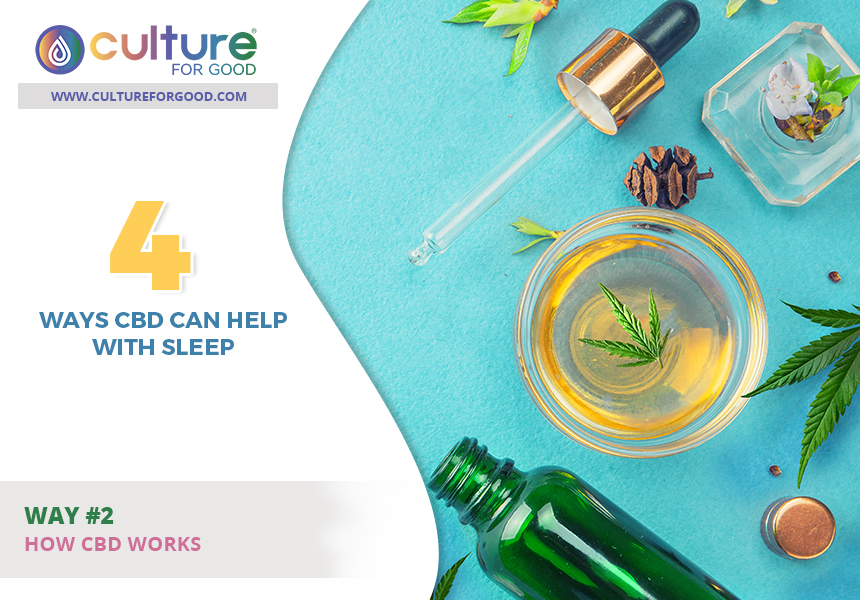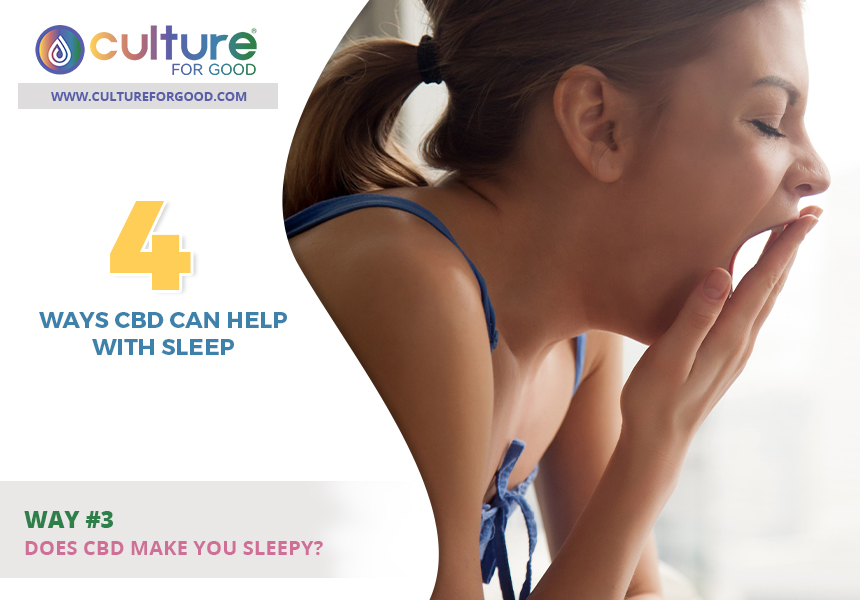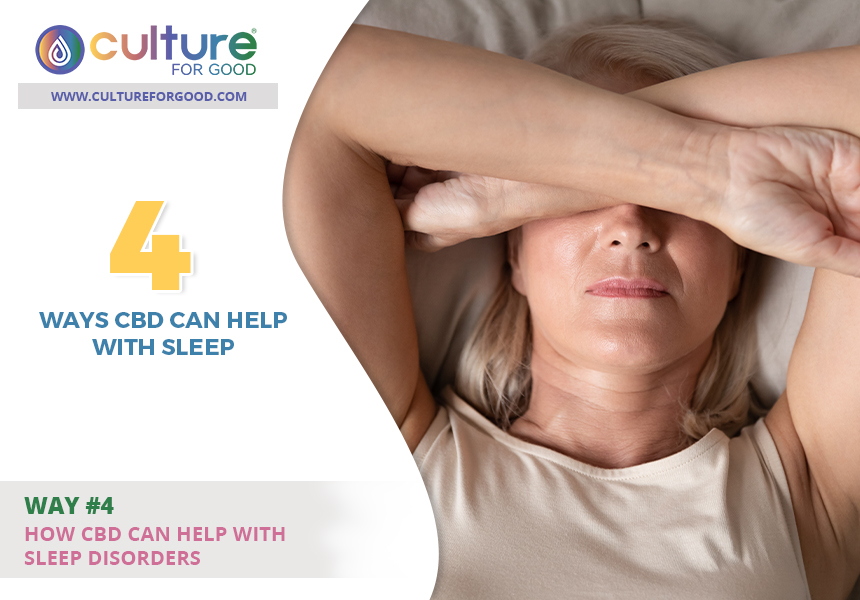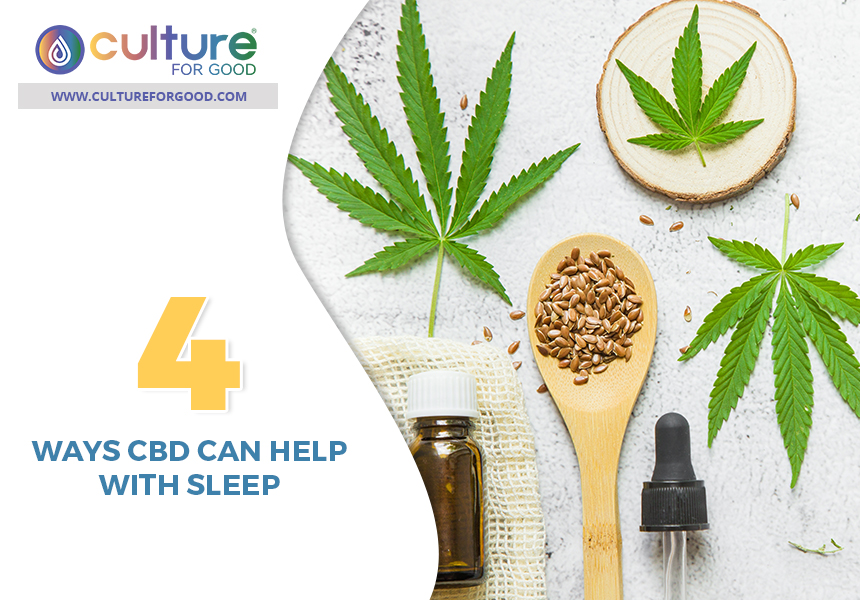4 Ways CBD Can Help With Sleep
When it comes to cannabidiol helping with sleep, there are two different groups concerned:
- Those who want to use CBD as a sleep aid (particularly, people with insomnia).
- Those who want to use CBD during the day and not feel sluggish.
Coincidentally, CBD is prominent as both a sleeping aid and keeping you relaxed but not fatigued throughout the day. We’re going to explore this phenomenon throughout this article.

1How Sleep Works
The process of sleep is so complex, we could write out volumes of encyclopedias explaining how it works. However, to make this brief, there are seven important areas of our brain that cause sleep¹:
- Hypothalamus – considered the control center for nerve cells which affect sleep and arousal.
- Suprachiasmatic Nucleus (SCN) – thousands of cells responsible for your behavioral rhythm and light exposure.
- Brain Stem – communicates directly with your hypothalamus in order to control wake and sleep cycles (uses cells to promote sleep or arousal).
- Thalamus – the information storage for all your senses which remains quiet while you’re asleep.
- Pineal Gland – is responsible for creating the hormone melatonin, which helps put you to sleep.
- Basal Forebrain – another part of the brain that controls wake and sleep cycles.
- Amygdala – responsible for processing emotions, usually very active when you’re asleep.

2How CBD Works
With the above information, you can get a sense of how our bodies “shut down” when we start to feel fatigued. In order for cannabidiol to initiate sleep, it’s effects would have to be similar to that of which naturally initiates sleep. Yet, they aren’t.
When you intake CBD, it immediately enters our endocannabinoid system (ECS) and interacts with various receptors.² The two most notable are:
- CB1 Receptors – located in the brain and central nervous system (CNS) and are responsible for pain, activity, stress, and memory.
- CB2 Receptors – located in peripheral organs throughout the body and are responsible for various activities in our immune system, muscular system, and cardiovascular system.
CBD has the ability to level out these receptors. For example, if too much of a CB1 receptor is activated, CBD can lower the activity. And vice versa.³
This is why people often feel relief from conditions such as insomnia, anxiety, and stress when they take CBD.

3Does CBD Make You Sleepy?
To put it simply, no! CBD will not make you feel tired if you take it throughout the day. However, if you’re experiencing symptoms from insomnia, stress, or anxiety, CBD does have the ability to alleviate.
The reason for this is it works on the brain and body differently than the process of sleep does.

4How CBD Can Help With Sleep Disorders
Scientists have struggled for many decades trying to come up with reasons as to WHY insomnia exists. In today’s world, they believe the cause is linked to the same thing as a number of illnesses; stress.⁴
The more the brain and body are strained, the more risk for health conditions (along with unhealthy lifestyles) appears. If you, like nearly everyone, have suffered from just occasional moments of stress, you’ve seen the negative health effects through headaches and mood swings.
However, if you experience long-term stress (consistent stress for a long period of time), then you’re much more vulnerable to a variety of illnesses, including, but not limited to:
- Anxiety
- Cancer
- Depression
- High blood pressure
- Insomnia
Since CBD has the ability to deter stress, it may just be a prominent solution to solving various sleep disorders.

Final Notes
In general, CBD is good at helping you sleep without making you sleepy. Because of that, you can use it both for a sleep aid and during the day. If you’re interested in giving cannabidiol a try, feel free to check out our products page for more information.
[the_ad id=”41555″]
Reference Sources
¹ NINDS: Brain Basics: Understanding Sleep
² Rambam Maimonides Medical Journal: The Endocannabinoid System, Cannabinoids, and Pain
³ British Journal of Pharmacology: The diverse CB1 and CB2 receptor pharmacology of three plant cannabinoids: Δ9-tetrahydrocannabinol, cannabidiol and Δ9-tetrahydrocannabivarin
⁴ MedlinePlus: Stress











